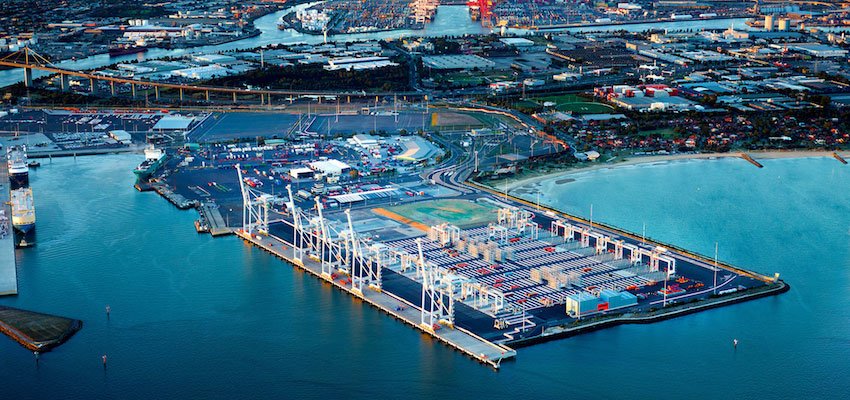THE Victorian Department of Transport has engaged Deloitte Access Economics to undertake a review related to a recommendation made by the state’s freight plan to “investigate options for the future role of government in regulating pricing/charges, and access to and from the port”.
It relates to industry concerns regarding increasing infrastructure charges by stevedores at the Port of Melbourne and the associated flow on cost to industry.
The review will assess port pricing/charges at, and access issues into and out of, the Port of Melbourne, to ensure that any review of charges is carried out in the context of the overall Port of Melbourne container supply chain.
While port tenants now determine their own pricing, the review provides an opportunity to look more broadly at supply chain charges and access.
The government has set up a review advisory board, chaired by Freight Victoria and made up of key government department and regulatory representatives, to oversee and support the review.
Andrew Hudson from Rigby Cooke Lawyers has been working with industry group, Customs Brokers and Forwarders Council Of Australia, to push for the review.
“We are very pleased to see this development. We’ve been working towards this for some time and we’re looking forward to contributing to the review and achieving some positive outcomes,” he said.
For the purposes of this review, the Port of Melbourne container supply chain is defined as the movement of import and export containers from the wharf to the port gate, not from origin to destination.
Container Transport Alliance Australia has also welcomed the review.
“There are many issues of access between road (and rail) operators and container stevedores at the Port Melbourne beyond the unregulated nature of the landside infrastructure charges levied by the stevedores on transport operators,” CTAA director Neil Chambers said.
“We hope that this review will peel back the ‘layers of the access onion’ and recommend ways to make the interface fairer, more efficient, more productive and price competitive,” he said.
Freight & Trade Alliance director Paul Zalai said he hoped the Victorian government would “champion the cause to support Australian exporters and importers that are suffering at the hands of the stevedores”.
He said, like every other business, stevedores should be either absorbing operating costs or passing these on to their commercial shipping line clients who in turn can commercially negotiate terms with shippers.
“I don’t blame the stevedores for looking for alternate models as the introduction of infrastructure surcharges is obviously a lot easier way to remain profitable,” Mr Zalai said.
“While there’s no suggestion of collusion between the parties, it is clearly a case of ‘follow the leader’ with each stevedore taking it in turn to ratchet up the pricing.”
The government has released terms of reference for the review on website of the Department of Transport.

